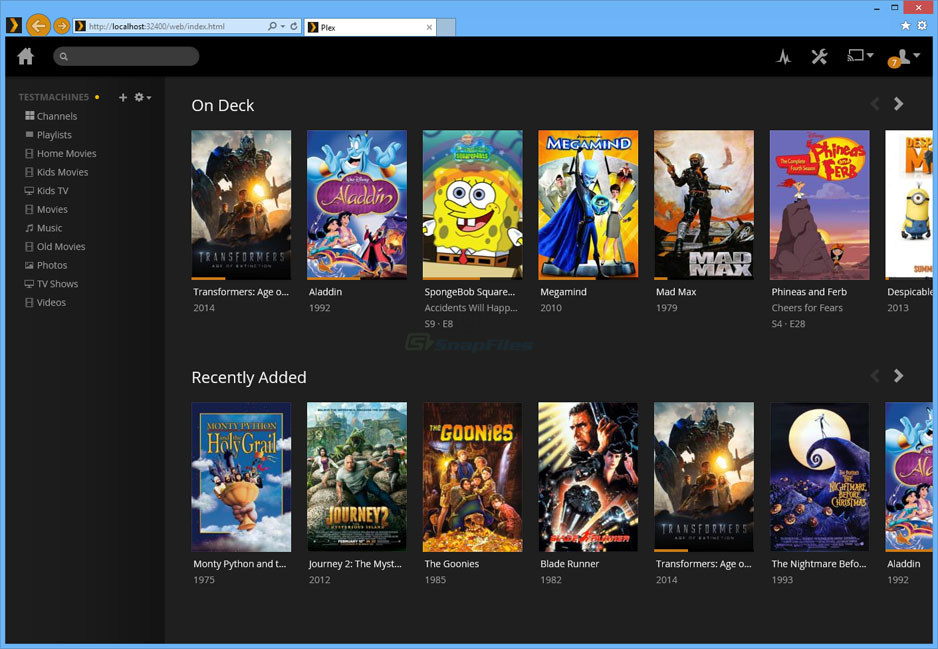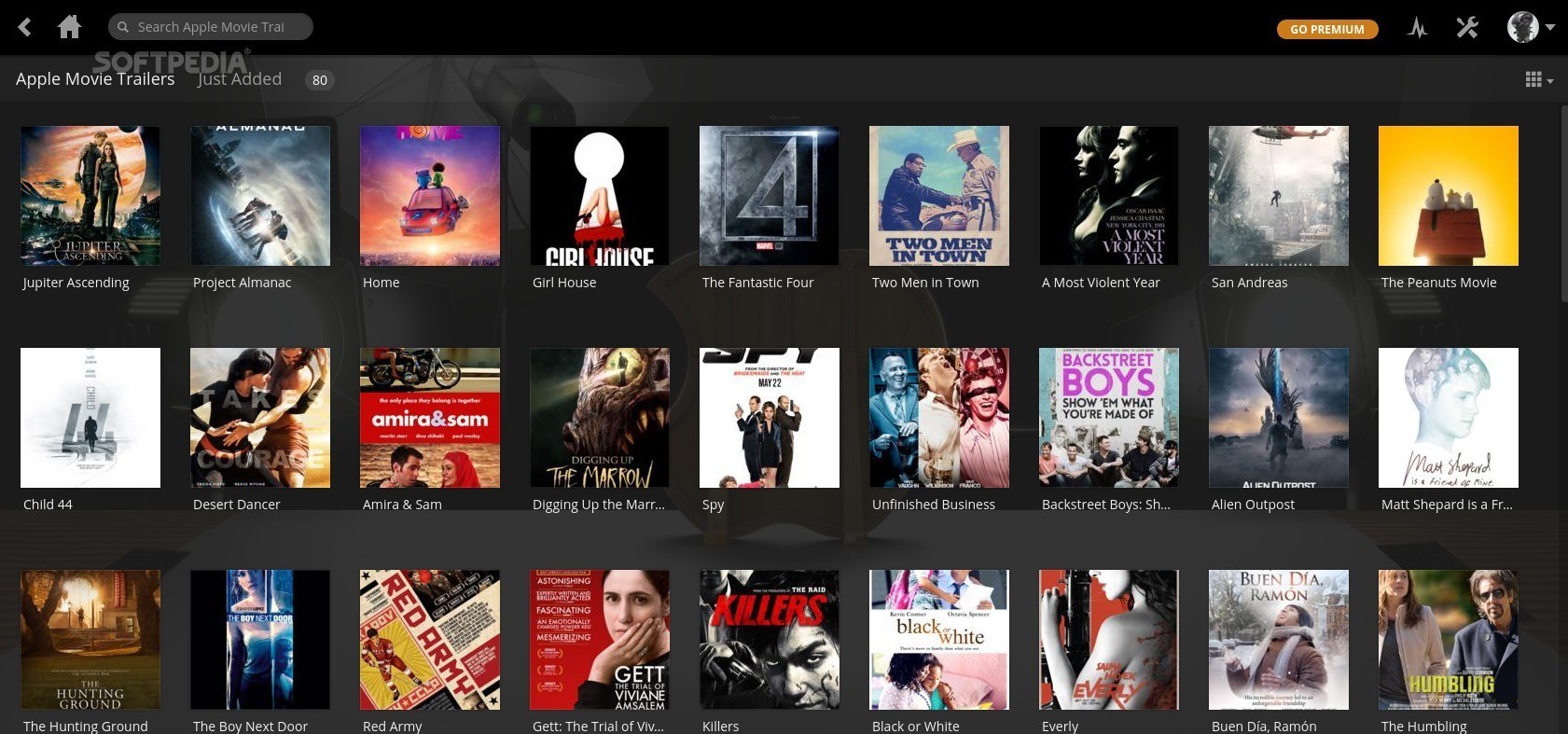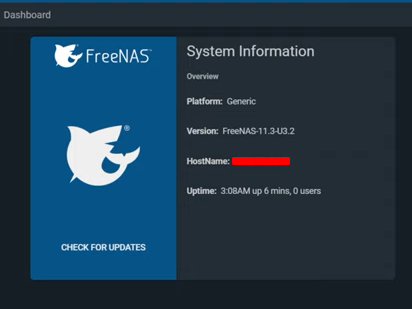
- #Best computer for plex media server movie
- #Best computer for plex media server 720p
- #Best computer for plex media server 1080p
- #Best computer for plex media server mp4
- #Best computer for plex media server portable
We will compare what each one has to offer. We have rounded up the best option on the market. This article reviews the best NAS for setting up your own media server at home. An NAS with the Plex Media Server makes all of this super easy.
#Best computer for plex media server movie
Imagine partying with your friends and streaming your special playlist or watching your favorite movie while you are stuck in a hotel room on a business trip.
#Best computer for plex media server portable
And the best part is you can easily access your media file remotely using any portable device. It does away with the need for sharing external drives with friends. Think of it as your personally owned Netflix in which you curate, catalog, and manage media files and users. Using Plex, you can set up your NAS as a media server. But the most significant advantage of using a NAS device is installing and using Plex Media Server. Further, by attaching it to a network, you can grant access to any number of users you want. That is large enough to store your precious collection, which you may have spent years curating.

For starters, you can expand your storage capacity to over 100TB. What’s more, you run the risk of damage, or loss, to the drive once it is out of your hands.Ī Network Attached Storage (NAS) negates all of these risks.

Also, when you share the device with family and friends, you give up a small part of your privacy. However, cataloging your media can be a nightmare each time you exhaust the storage, you need a new one. And you can lend the device to family and friends when you want to share your collection. You can offload your computer’s hard drive onto the external drive and free up resources meant for more critical tasks. On the face of things, external hard drives offer a good solution. So, storing them on your computer’s hard drive means overloading your system’s resources. Firstly, it occupies enormous amounts of disk space. Transcoding 4k is basically s fools errand.Managing your collection of movies, music, or photos can be a challenge.
#Best computer for plex media server 1080p
If you plan on this use case, store a 4k and 1080p copy, and transcode the 1080p copy down when needed for mobile streaming. TLDR what is the actual use case? For a home user with ~5 concurrent streams, assuming they are all direct play 1080p, a i3 or equivalent AMD CPU, 4GB of RAM, and a single hard drive would do it without even trying.Īlso, the first 3 rules of 4k is do not attempt to transcode 4k. BUT, a single hard drive is faster then 1 gigabit Ethernet… so if you do have a use case where your trying to feed a lot of streams, your going to run into networking bottlenecks before you run into hard drive read speed limitations (unless, again, MANY streams at once which a hard drive will struggle with).
#Best computer for plex media server mp4
I typically watch full 4k Dolby Vision / Dolby Atmos blu rays (converted to MP4 or MKV) when available which are MASSIVE files, a single movie can be 50-100 GB depending on run time, and my little i3 and 3 GB of ram doesn’t even try, because it’s not really actually doing anything.Īnd reading data off a hard drive is easy, every hard drive made in the past 15 years would be able to smoothly play a bluray rip, definitely no need for cache unless your attempting to have MANY streams, but even then, cache likely wouldn’t help, you would just need a very fast array (lots of discs) to get the throughout up.
#Best computer for plex media server 720p
With that, I can easily transcode 3-4 1080p streams down to 720p, depending on their bit rate (typical already somewhat compressed 1080p), I can only do 1 fill bluray rip to 720p for reference.ĭirect play which is 99% of what I use since I usually watch in my house on my TV or other devices, requires almost no resources at all since it’s just sending data directly with no transcode or “work” being done. My homelab is a i3 6100…… and I only give that VM 3 GB of RAM and 2 CPU threads. I run my Plex server in a Ubuntu server VM on my homelab. Are you planning to transcode? How many streams? I wouldn’t use RAID0, there is basically no point when RAID 5 exists. Plex needs almost nothing… the biggest thing is raw space. What size drive or partition should I use for the cache? an SSD for this? Is there a better way of doing this now?

Does anyone have any suggestions on what the best way is to setup a cache for those drives? Thinking of using either an m.2 or an ssd as a cache with PrimoCache.

As of today (Nov 10, 2021) what is the best Plex setup in terms hard drives? I'm thinking two 12 TB hardrives in raid 0 (don't really care if the data dies) with a SSD cache.


 0 kommentar(er)
0 kommentar(er)
